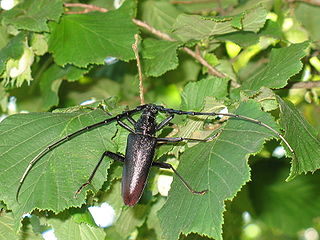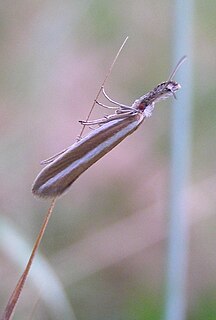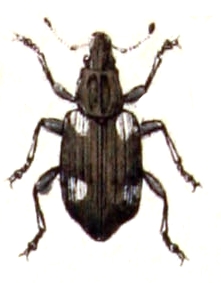| Dorytomus | |
|---|---|
 | |
| Dorytomus longimanus | |
| Scientific classification | |
| Kingdom: | Animalia |
| Phylum: | Arthropoda |
| Class: | Insecta |
| Order: | Coleoptera |
| Family: | Curculionidae |
| Subfamily: | Curculioninae |
| Tribe: | Ellescini |
| Genus: | Dorytomus Germar, 1817 |
| Diversity | |
| at least 170 species | |

Dorytomus is a genus of weevils belonging the family Curculionidae and subfamily Curculioninae. It was first described by the German entomologist, Ernst Friedrich Germar in 1817. [1]
A genus is a taxonomic rank used in the biological classification of living and fossil organisms, as well as viruses, in biology. In the hierarchy of biological classification, genus comes above species and below family. In binomial nomenclature, the genus name forms the first part of the binomial species name for each species within the genus.

Weevils are a type of beetle belonging to the superfamily Curculionoidea. They are usually small, less than 6 mm (0.24 in), and herbivorous. About 97,000 species of weevils are known. They belong to several families, with most of them in the family Curculionidae. Some other beetles, although not closely related, bear the name "weevil", such as the biscuit weevil, which belongs to the family Ptinidae.

The Curculionidae are the family of the "true" weevils. They are one of the largest animal families, with 6,800 genera and 83,000 species described worldwide.















